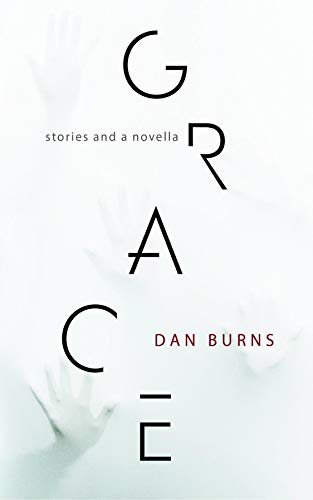Book Review: Grace: Stories and a Novella
Grace: Stories and a Novella. Dan Burns. Chicago Arts Press, October 25, 2019, Hardcover, Trade Paperback, E-book, and Audiobook, 292 pages.
Reviewed by Charles Kuner.
The dictionary defines grace as being moral strength, the fortitude to perform a duty. It's also esteem, kindness, condescension, and leniency. Grace changes us and takes us from what we were to what we should be, and is one of the themes that runs through all of the stories in Grace: Stories and a Novella, the new story collection and fifth book from author Dan Burns.
Other themes that tie the stories together are nature, family, personal relationships, and alcohol abuse. These themes form stories that are ultimately about dignity and self-worth. Insight is earned only through suffering.
All of Burns’s stories ring true. Readers can identify with the characters in their struggles with the realities of life. The emotions and feelings are universal. Some characters self-delude themselves, lie to themselves, or are in denial of their shortcomings. Through their suffering, they gain insight and see through the eyes of lived experience.
There's so much for readers to learn about people, the beauties and majesties of nature, and how to confront and deal with eternal verities and life's questions. Reading these stories will give readers an appreciation of how hard that task can be.
The opening story, “Redemption,” is the redeeming of the two main characters, Anson and Marcus. They rescue each other from their crises, which could’ve led to a life of dissolution. This story is reminiscent of a Thomas Hardy novel, where fate plays a significant role as it impacts the lives of people for good or ill.
I especially enjoyed Burns’s inclusion of poetry in the story. The protagonist, Anson, writes the poem “Black Crow” on the anniversary of his wife’s death from Alzheimer’s complications. It reminds one of Edgar Allan Poe’s “The Raven.” The importance of the past weighs heavily in the story. In "Black Crow," we have these lines:
“To stir the cauldron of regret,
Not for inaction but action,
For years feeling certain
I would only regret the
Things I do not do but now
Realizing not too late that
Certainty is uncertain except
When it comes to living with
The past, the ghosts,
For all the days that remain.”
In the story "The Plight of Maximus Octavius Reinhold,” Burns introduces Sebastian Drake and his friend Scotty from his previous novel A Fine Line, which this reviewer highly recommends.
The stories “Hardwired” and “Final Countdown” are on par with some of the better-written science fiction stories such as Ray Bradbury’s The Martian Chronicles.
Some of the main themes are clearly on display in the title novella, “Grace," such as alcohol abuse, the importance of the past and family, infidelity, and the role of fate. Literary devices such as soliloquies are used by one of the main characters, Willie, which lets the reader know what he’s thinking. And, there’s use of Ernest Hemingway-like dialogue—very spare dialogue that’s staccato-like and moves the novella in a very timely fashion.
Burns makes effective use of illustrations, poetry, and prose to convey the essence of his stories. He is a very descriptive writer. One can see in a mind’s eye what he is describing, whether it’s a character, place, or seascape. Some aspects of his prose are very poetical, begging to be read aloud, and having a flowing rhythm as in a piece of music.
The stories and novella address matters that humanity has sought answers from time immemorial. They deal with questions of what we humans are, as a collective species and as individuals. They change our perception of ourselves and thereby our interaction with others, and raise questions that we are inevitably confronted with in the course of our lives. It's my feeling that these stories will stay with us, move us, and change us for the better. These are not cardboard characters but real people who love, hate, worry, deny, and seek revenge.
Grace: Stories and a Novella is writing and literature at its very best.

